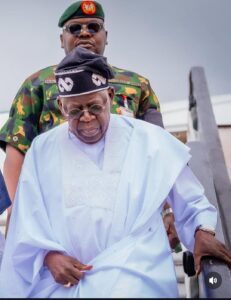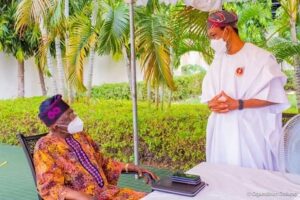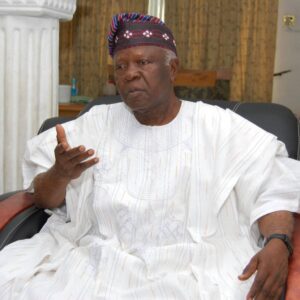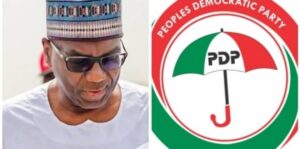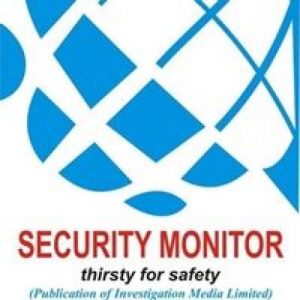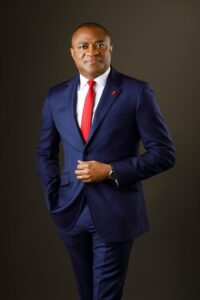The Challenges Of Genuine Democracy In Nigeria By Agbore Olawale
Of all the system of government practiced all over the world, democracy enjoys a unique acceptance that
is often regarded as a right mode of governance not just because successful and developed nations of the world practised it, but its fundamental disposition towards the recognition and respect for decision and choice of the majority.
Historically, democracy is often associated with the efforts of the ancient Greeks and Italy who were considered the founder of Western civilisation. The term democracy comes from the Greek around 508 BC. It means ‘rule by the simple people’ and by dictionary definition, it is a system of government in which the supreme power is vested in the people and exercised directly by them or their agent under a free electoral system.
Worthy to note are the main principles of democracy which forestall the recognition of the strength of the majority as well as the right of the minority. Those principles includes; the rule of law, the freedom of the press, respect for human right, active political process and enlightened citizen. These principles are heavily guided by the constitution to avoid its violation and manipulation. This is obvious in Italian democratic system which is adjudged as one of the best in modern time.
Reports from the economic intelligence unit for last year’s democracy index indicates that there are currently one hundred and twenty three countries practising democracy out of one hundred and ninety two countries of the world with twenty rated as the best. Those countries includes; Norway, Iceland, Sweden, New Zealand, UK, USA, Australia, Italy, Finland, Denmark, Canada, Austria, Malta, Luxembourg, Germany, The Netherlands, The Republic of Ireland, Mauritius, South Korea, Spain, Uruguay and Austria.
In a sharp contrast to the above report, Nigeria which occupies one hundred and ninth position in global democracy and governance rating has continued to slide down due to numerous factors that is bedeviling our democratic system. The country is categorised under hybrid democratic and governance which is the middle point between democracy and authoritarianism. In fact, Nigeria is currently lagging behind Sierra Leon, Burkina Faso, Kenya, and Uganda and in fact, in the West African sub region and among member state of ECOWAS, Nigeria was among the poorest rated ranking.
Several factors were responsible for this abysmal record in our democratic history and there is no point arguing that Nigeria is still young as a democratic nation having maintained nineteen solid years of uninterrupted democracy. The country like human has attained the age of maturity and any retardation in growth should not be treated with levity.
Topmost among the factors responsible for the sustenance of democracy in any society is potency of the constitution and strict adherence to its content. Although there has been series of constitutional review in Nigeria the current nineteen ninety nine constitution still in operation in the country is grossly inadequate to address myriads of challenges that is confronting our democracy.
Too much power is granted to the executive arms of government which is an outright divergent from what is obtainable in a true democratic setting. The influence of power on a typical black man with inherent traits and tendencies to oppress his fellow men can not be underestimated, the country must ponder on the perception of Lord Acton who opines that ‘Power tends to corrupt and absolute power corrupts absolutely’. If the country most advance in democracy, more of the executive power must be diffuse.
Interestingly, the eight Assembly has commenced operation in that dimension through series of constitutional amendment particularly the granting of financial autonomy to state legislature and judiciary. This is tailored towards maintaining a clear cut separation of power which will in turn extricate both the lawmakers and the interpreters of the law from the whims and caprices of the executives.
Similar gesture should also be extended to Local Government System, the people should be allowed to choose who to lead and represent them at that level. Financial autonomy must be granted and election conducted for the selection of the council chairmen. Selection in place of election is a fraud and a rape on democracy and there must be constitutional backing to avoid such.
Worthy to note is the need for a review of immunity clause which is a growing concern among political annalists due to misconduct of top government officials. Nigeria must wake up to the realisation that not all chief executives possess the traits and attributes of a good leader to deserve such constitutional backings. The immunity clause has embolden top political leaders to embezzles, misappropriates, diverts and stashes away public fund and walk around as a free man while in office and even after leaving office. In a country with history of abysmal and ruthless misuse of power, immunity clause must be scrapped. Not even in the United State of America from which Nigeria borrowed its pattern of constitution ascribed such privilege to the commander in chief and the state security officers.
Former U.S President, Bill Clinton when faced with the sexual scandal in nineteen ninety eight was made to face the consequence while still in office. Clinton was held in civil contempt of court for giving misleading testimony about Lewinsky and was also finned ninety thousand Dollars. So serious was the case that he was impeached by the House of Representatives but was subsequently acquitted in a twenty one day senate trial.
Similarly there is an urgent need for a constitutional review on the bi cameral legislation that is being practised in the country. Some political analysts believe that the system of government in Nigeria is too expensive to operate. Half of the political officials salaries, if put into proper use could give hundreds thousand of unemployed youths useful employment. According to Professor Itse Sagay, a Nigerian senator earns over three billion naira per annum which turn out to be one of the best in the world despite the ravaging poverty that is affecting an average Nigerian.
The country needs downward review of the salaries of politicians to reduce the desperacy of unpatriotic citizens who see politics as the easiest means of amassing wealth. If leadership position is separated from wealth and affluence, only those with genuine passion to serve will venture into politics. Men who are full of ideas, men with passion to advance the course of humanity and turn things around for better. When desperacy is removed, political violence, killing, rigging and the issue of vote buying would be reduced to the barest minimum. The position of the press cannot also be over emphasized. Its role of checks and balances against excessive and abuse of power are crucial to the survival of any society. A free press is indispensable for the people to be informed and to participate on democracy. Although Nigeria has enacted Freedom of Information Act in the year 2011, the public has not made sufficient use of it due to quasi democracy that is in operation. The level of education of the vast majority of the people and crippling poverty have stunted our growth in democracy.
Agbore is Lokoja, Kogi State based journalist and a member of the Nigerian Guild of Investigative Journalists, NGIJ

